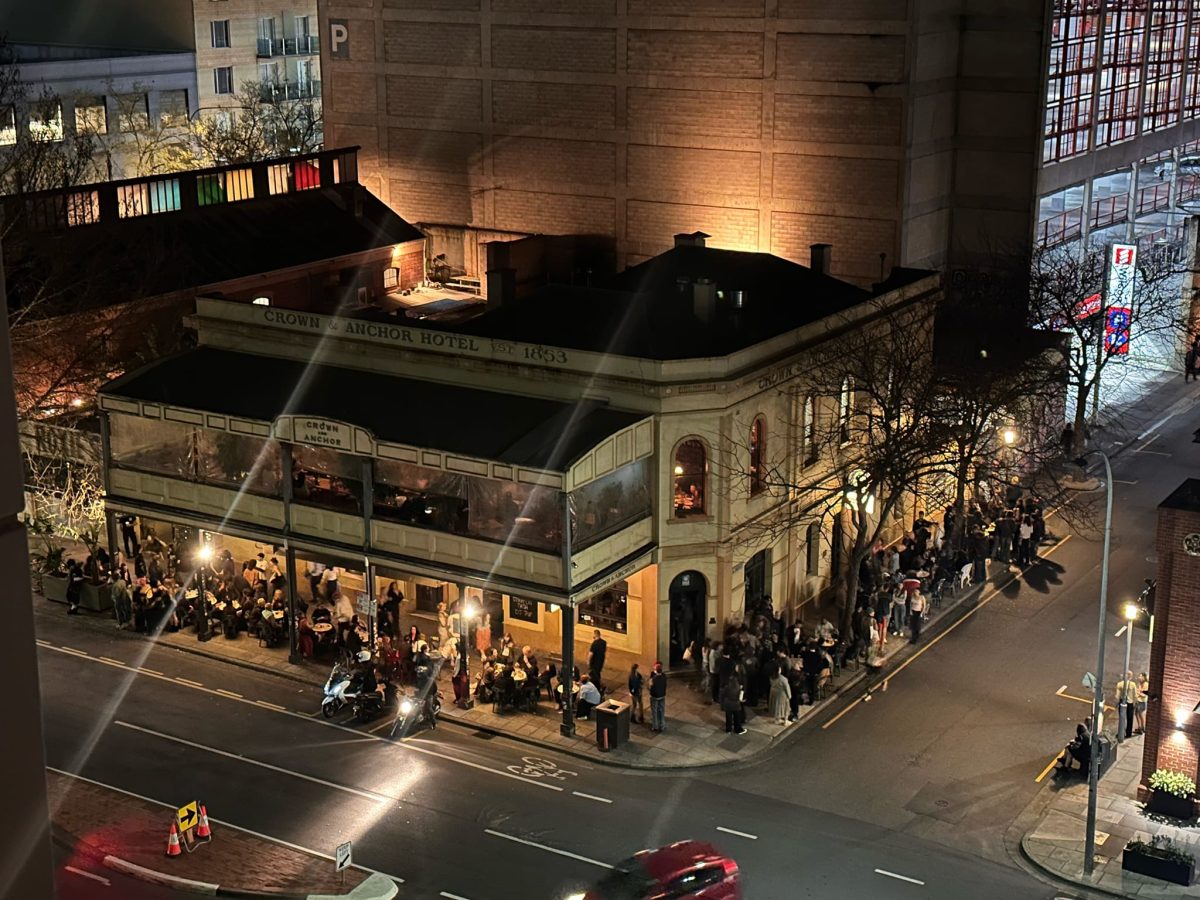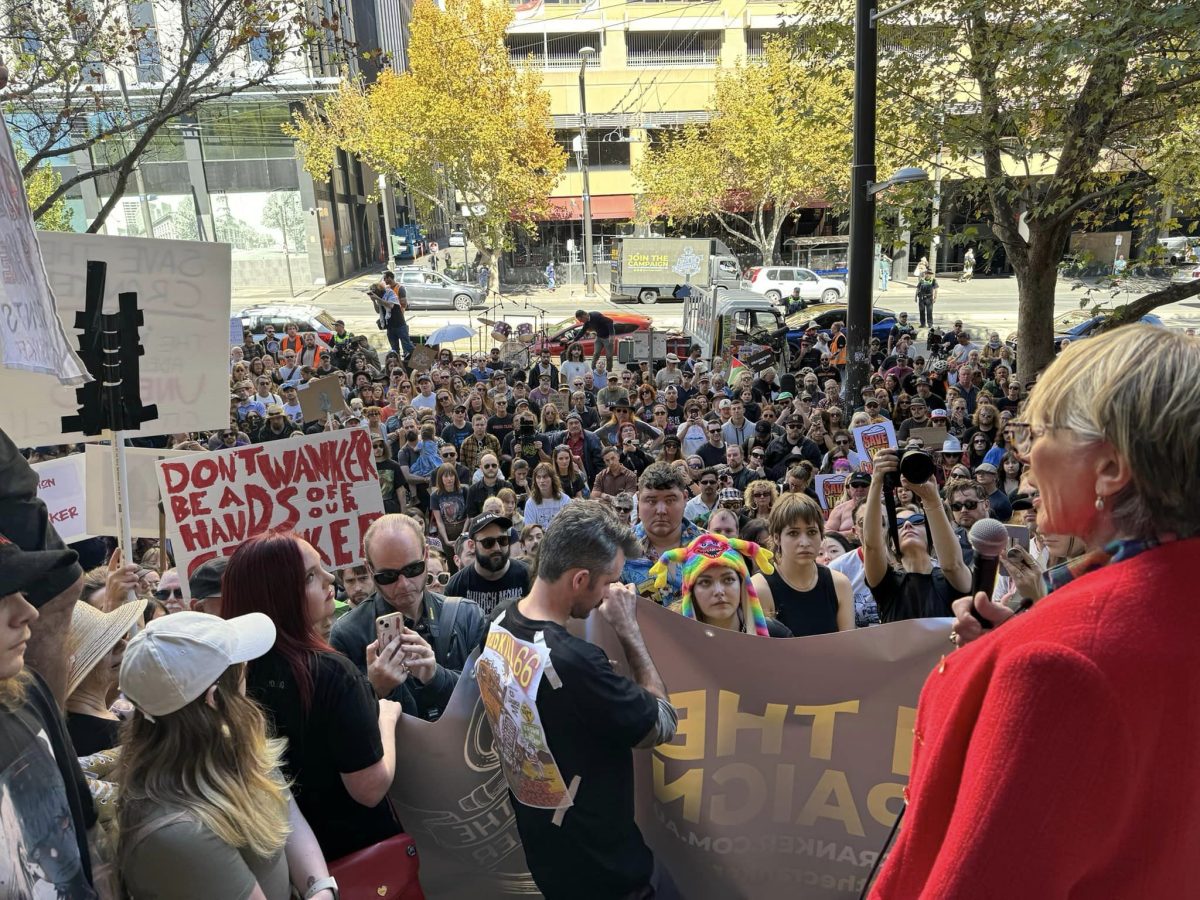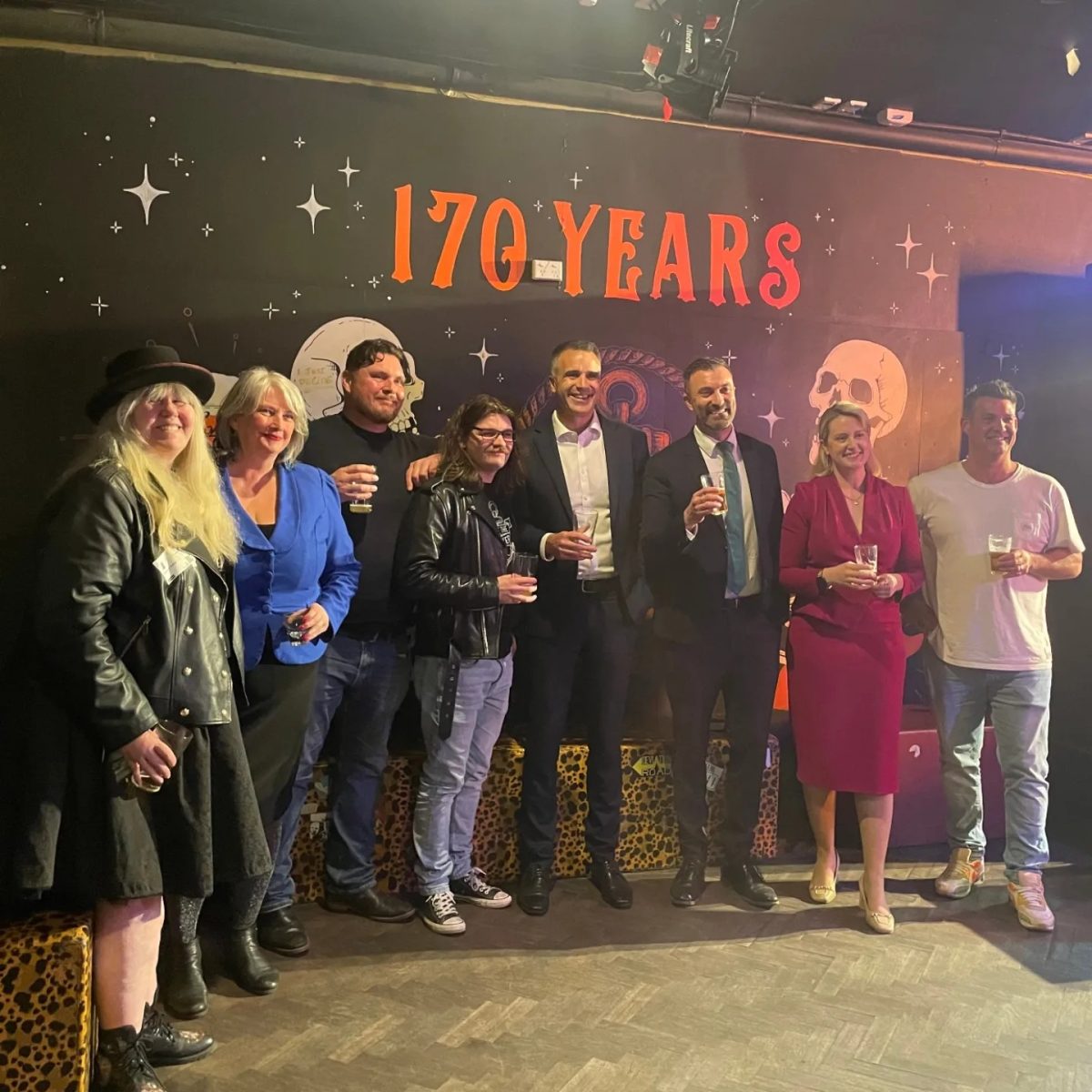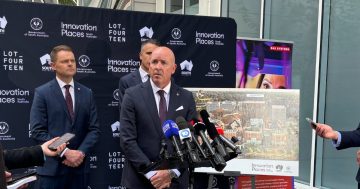
After months of work by locals dedicated to saving the Crown and Anchor Hotel, legislation has passed entrenching it as a landmark of Adelaide. Photo: Save The Cranker.
The iconic Crown and Anchor Hotel on Grenfell Street in Adelaide will be protected under new legislation saving key live music venues across the city from developers.
South Australian Parliament has passed the Planning, Development and Infrastructure (Designated Live Music Venues and Protection of Crown and Anchor Hotel) Amendment.
Following a long campaign to save what locals call the ‘Cranker’, this legislation will ensure the hotel cannot be demolished or built over – and that its current land use as a live music venue will be preserved.
It came after months of public pressure bore down on the State Government to stop developer, Wee Hur Holdings Ltd, from demolishing all but its facade to build a 19-storey student accommodation building. After some negotiations, the parties came to an agreement for the law to permit them to develop on the site adjoining the hotel a building of up to 29 storeys.
Premier Peter Malinauskas said the bill also amended planning laws to protect significant live music pubs in the City of Adelaide area from complaints of future neighbours.
“This solution protects one of Adelaide’s great venues, delivers urgently needed student accommodation in a housing crisis and maintains our state’s strong reputation as an investment destination,” he said.
“It is an example of what can be achieved when government, the private sector, the community, and indeed the parliament, are prepared to work together in a genuine spirit of goodwill and compromise to achieve a mutually beneficial outcome.”
Greens MLC Rob Simms said his party secured protections for these pubs, akin to those given to state heritage places.
“This is an important level of protection from demolition by neglect that will prevent the building from facing the fate of so many dilapidated landmarks in the city.”
The only concession was for new housing developments built alongside key live music venues to install noise attenuation and/or acoustic treatments.
Once development approval is granted for the site adjacent to the Cranker, Wee Hur Holdings will be permitted to partially demolish and restore the pub’s live music room so they can meet this condition.

Around 3000 people marched to SA Parliament House in April. Upon arrival multiple politicians spoke in support of the rally, including Adelaide Lord Mayor Jane Lomax-Smith. Photo: Save The Cranker.
A select committee of the Legislative Council will also be established to inquire into and report on local and live creative venues, with particular focus on the impacts of, and reasons for, recent loss of live music and local creative venues in SA and to understand the cultural, social, economic and other contributions made by local and live creative venues.
Last month a federal committee held its final round of interstate public hearings for its own live music inquiry, meeting in Adelaide State Parliament on 7 August. Commonwealth Arts Minister Tony Burke MP launched the parliamentary investigation in March, due to the Australian industry’s struggles with the advent of streaming, the COVID-19 pandemic and gambling machines.

After the legislation passed, SA Premier Peter Malinauskas rolled up to the pub and congratulated the team behind the campaign. Photo: Save The Cranker.
Committee Chair Brian Mitchell said they’d heard plenty of evidence about live music being part of an ecosystem where “everything needs to work in harmony to work at its best”.
“Just as it has with a host of other sectors, the internet has been a massive disrupter to the music business,” he said. “Most fans don’t buy records anymore, they stream songs, and artists only get a tiny fraction of the streaming proceeds.
“Performers used to go on tours to help sell records, now they go on tour to earn a living, so that’s really changed the dynamic.”
The inquiry held its last public hearing in Canberra on Wednesday (11 September). Now according to Mr Mitchell – “it’s heads down, bums up to prepare a report and recommendations”.




